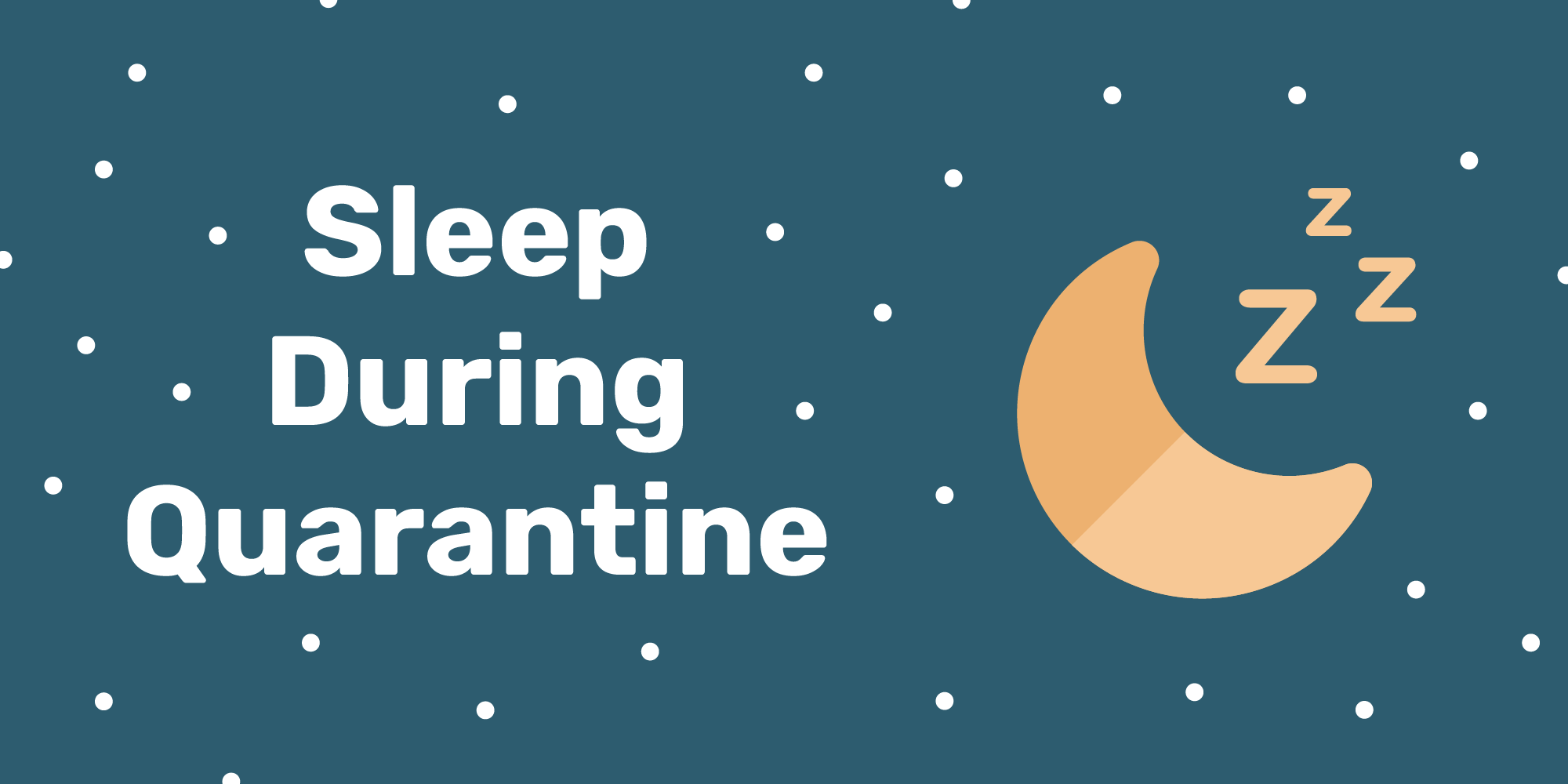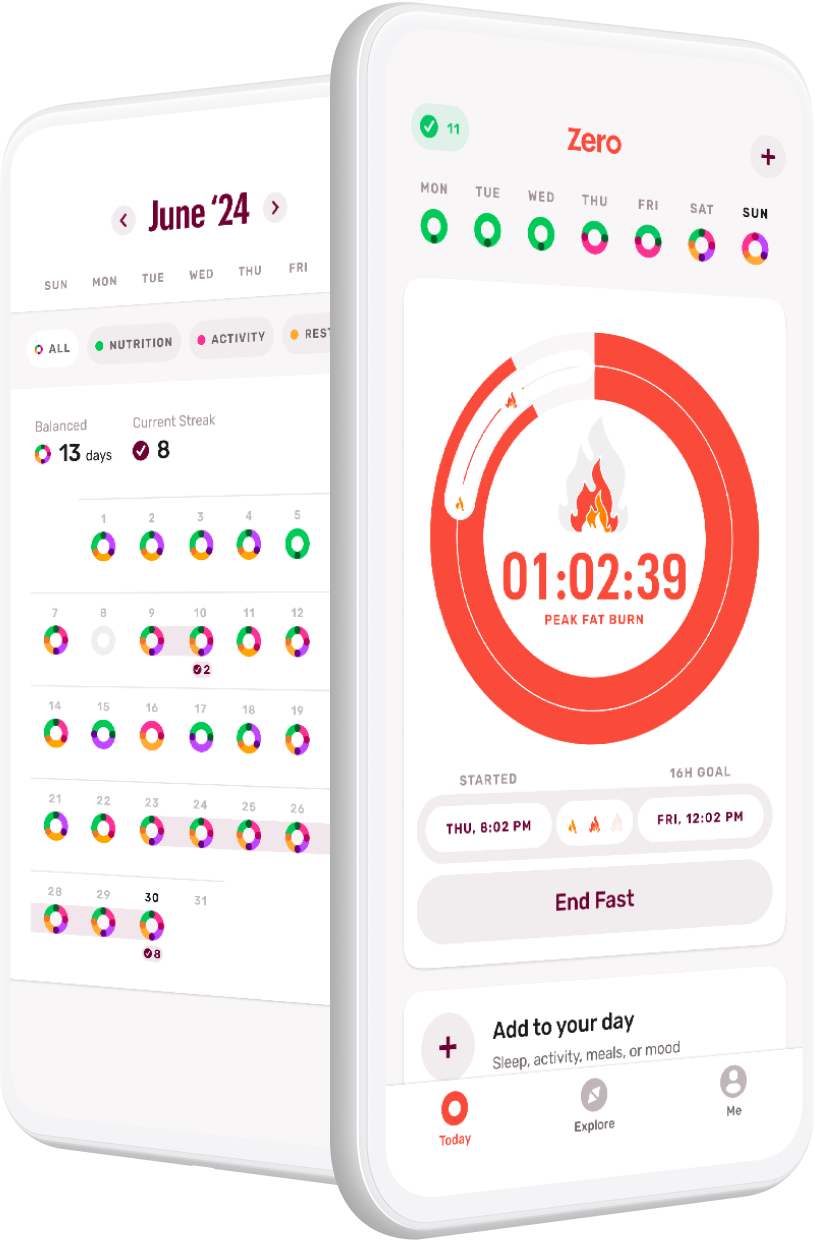Sleep is an incredibly powerful and essential function of life, providing an almost unlimited number of benefits ranging from maintaining the immune system, regulating metabolism/a healthy weight, cognitive function and reduction in chronic disease.
However, with the current shifts in our daily lifestyle, it’s easy for sleep patterns to be disrupted. Many of us are staying up later, watching more tv, stressing over the news, and ultimately not getting as much sleep—especially quality sleep. On the other hand, you might feel more sluggish, less motivated, and spend longer in bed than normal. But more time in bed doesn’t translate into better quality sleep or a healthy sleep pattern. Either way, our resting routines have likely taken a hit.
Aside from the multitude of essential benefits that sleep itself provides, getting a restful (or not restful) night usually has an impact on other aspects of our day-to-day life and overall health. Less sleep can result in lower energy and poor performance throughout the workday, it can lead to less motivation to exercise and the ability to perform at a high level, it can adjust our metabolism and reduce our willpower to make nutritious food choices and impact our ability to manage stress. Working on our sleep and putting some healthy habits into place are important for us to focus on during a time when many of our normal healthy routines have been compromised.
Sleep Challenges
Increased stress levels, more exposure to artificial light, shifts in our eating and drinking patterns, and alterations in our sleep/wake routines are all changes that can impact our ability to rest and recover. So, let’s take a look at how we can overcome these hurdles.
Light Exposure
In the current age of technology and electricity, our exposure to light is now not only limited to daytime. We can be exposed to light, natural and artificial, 24/7. Natural light is an important part of our health and circadian rhythm, however, artificial light, specifically at night, has a negative impact on our sleep.
With many of us working from home and limiting trips outside, we’re not getting as much natural light as we’re used to, but sunlight is important to help regulate our circadian rhythm in relation to the day-night cycle. It communicates to our bodies that it’s time for wakefulness and activity. If you can, schedule some time in the morning to get outside and experience the natural daylight, even if just for 15 minutes. This can improve your mood, get you some important vitamin D, and start signaling the brain that it’s daytime, which helps facilitate your circadian rhythm.
When the day ends, the loss of light starts signaling to our brains that sleep time is approaching soon, and we start producing important sleep hormones like melatonin. However, exposure to artificial light after sunset tricks our bodies into thinking it’s still daytime, leading to melatonin production suppression and delay, which can shift our internal 24-hour clock. Without the normal melatonin release, it may be harder to fall asleep and affect the quality of sleep for the night.
Although it’s not realistic to shut out all artificial light once the sun sets, there are a couple of tricks to lessen our exposure. Most phones and electronic devices have a “night shift” function that you can put on a timer. Another option is to wear blue light blocking glasses and/or make it a habit to stop using electronics or watching TV 2-3 hours before bed.
Stress
With everything going on in the world, it’s common for stress levels to be high—our minds constantly racing with all the information that’s at our fingertips 24/7. Chronic stress has been linked to a disruption in the circadian sleep-wake cycle and overall decrease in the quality of sleep. Finding a positive way to cope with stress will not only be helpful to your mental health, but will likely result in better rest as well.
Inconsistency
How consistently you go to bed and wake up on a day-to-day basis can also have an impact on your sleep. Having the same sleep/wake cycle can improve circadian rhythm and provide additional health benefits. One study showed that increased sleep irregularity was associated with increased daytime sleepiness, increased markers of cardiovascular disease, less physical activity, and higher perceived stress and depression.
Even though you might be staying up later and sleeping in later, that’s ok as long as you keep it consistent. Set a bedtime and wake-up time that you can follow throughout the week—weekends included. Try to make sure you allow for a minimum of 7 hours of rest with ~ 8 hours being the goal.
Alcohol Consumption
Increased stress coupled with boredom have led to increased alcohol sales and consumption over the last couple months. Alcohol can be a part of a normal lifestyle, but if you start using it as an unhealthy coping mechanism, have issues with overconsumption, or if it starts impacting other aspects of your health negatively such as exercise, nutrition or our sleep, you might want to pause and take a closer look whether we want it in our routine or not.
In some cases, alcohol can help us fall asleep quicker, but studies have shown that the consumption of alcohol has a negative impact on the quality of sleep, specifically the total amount of REM sleep we get. After a drink or few, it is likely easier to fall asleep, but the quality of sleep is probably worse.
The effect of alcohol on sleep can be dose-dependent and is variable from person to person. It’s important to assess your individual response to that occasional nightcap and whether the potential impact it has on your sleep is worth it or not. One approach to mindful drinking is to track the number of drinks you consumer each day. The best part? We have an app for that! Check out Less if you’re trying to have less drinks and more alcohol-free days.
Late-Night Eating
Not only does late-night light exposure, increased stress, and more alcohol consumption contribute to poorer sleep, these activities often coincide with an increase in late-night eating. A late-night movie is usually paired with some popcorn. Stressed? You might grab a bag of your favorite chocolate chip cookies before bed. What goes with wine? Maybe some chocolate. Not only are the additional snacks and late-night eating bad for your waistline, they also have a negative impact on your sleep.
Some studies have shown that in healthy people, higher calorie consumption and increased fat intake within 60 minutes before bed was associated with difficulty falling asleep and decreased REM sleep. Possible explanations may include altered circadian rhythm with feeding cycles and alterations in gastrointestinal function such as discomfort from a fuller belly an GERD.
Even when intermittent fasting, timing of food consumption can have an impact on sleep. During Ramadan, those who practice fasting during this time can only consume food before dawn or after sunset. Some research has indicated that this eating pattern results in a reduction of REM sleep.
Consider setting a cutoff time for meals and snacks in relation to your bedtime. 2 to 3 hours before bed will likely provide your body with enough time to rest and digest and get your body ready for sleep.
Fasting and Sleep
The impact that fasting has on sleep is likely dependent on the type and duration of the fast. With some anecdotal reports, people have experienced difficulty falling asleep and staying asleep while on a prolonged fast. Aside from hunger pangs, this can potentially be explained by the increase in cortisol and epinephrine while fasting, two hormones which are normally decreased during sleep. The increased stress and “fight or flight” response can have an impact on wakefulness and quality of sleep. The good news is, once a prolonged fast is broken, sleep will generally return back to how it was prior to the fast, if not better.
Because of the additional stress on the body, we don’t recommend prolonged fasts at this time. While we’re focused on keeping our immune function high and staying virus-free, it’s best to avoid additional stress on the body. Instead, focus on short fasts and time-restricted feeding—which help reduce mindless snacking and improve sleep.
Another study showed that shifting from a feeding window >14 hours to one between 10-12 hours resulted in an improvement in subjective sleep satisfaction and energy throughout the day. Restricting food consumption between 8-12 hours also has potential benefits to circadian rhythm regulation, which suggests an improvement in the sleep-wake cycle.
Continue your short-term fasts and time-restricted feeding to hopefully get that added sleep benefit as well.
In Summary
Sleep is yet another component of our life that has been impacted by the global issues we’re facing. Increased stress, more exposure to artificial light, inconsistencies with our schedules, and more alcohol consumption all contribute to sleep struggles. However, there are some simple strategies we can start putting in place to improve our rest and recovery. Here’s what we suggest:
- The Complete Guide to Fat Burning - April 30, 2024
- Zero Live #4: 3 Ways to Boost Fat Burning - March 28, 2024
- Zero Live #3: Nutrition, Fast Breakers, and Fasting - March 11, 2024


